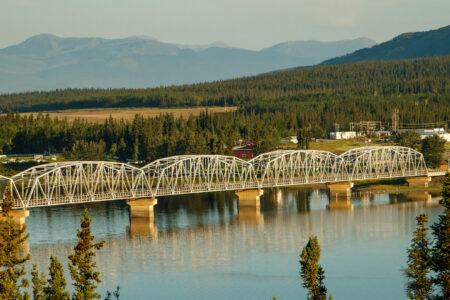
“It’s not nice to fool Mother Nature” was the tag line for a series of margarine advertisements in the 1970’s. Chiffon margarine was right.
Today, we are already seeing what happens when we ignore nature and natural limits to pursue short term and unsustainable pollution-based prosperity. We are feeling the heat from climate change – both in cities and in the wild.

Calgary’s floods and Toronto’s ice storm displaced thousands and cost billions to repair the damage. In regions where climate change is having the most impact, Arctic species like the polar bear are already being forced to adapt to lessening arctic sea ice. Action is needed, urgently.
Despite this urgency, Canada is not on track to meet our 2020 emission reduction commitments. In this context, the news that Ontario is joining Quebec and California in a carbon cap and trade system is welcome. This marks the fourth province that has a carbon pricing system, Alberta and B.C. being the others.
One thing is abundantly clear: by thinking about nature and our natural environment first, we are not compromising the economy. B.C.’s experience with a carbon tax has shown success at reducing emissions by 19 per cent while economic performance stayed on track with the rest of Canada. We know that forward looking countries around the world are looking to clean energy as a generator of jobs through innovation.
The best news from our perspective is that this provincial leadership will set the economic stage to support and accelerate the trend of leadership by individuals, businesses and cities to achieve their own significant emission reductions.
Cities have been major players in reducing emissions to date. Edmonton and Vancouver were most recently recognized through WWF’s Earth Hour City Challenge for their plans and actions which range from improving transit to encouraging innovative partnerships to reduce energy use. A price on carbon will make investments in renewable energy and energy efficiency pay off sooner.
Many people are doing what they can to reduce their own emissions – from taking transit to buying green power to choosing electric cars. A price on carbon will provide an even bigger economic incentive for future action.
Businesses too are showing leadership. Through WWF’s international Climate Savers program, 29 global companies have reduced 100 million tonnes of CO2 from their operations and have demonstrated that these actions can be profitable and create jobs. A Canadian example is Fairmont Resorts and Hotels, who recently reduced their operating emissions by 20 per cent from 2006 levels.
Each of these actions on their own are commendable, and an excellent way to demonstrate the possible. But to achieve change at the scale and speed we need, our economic systems need to build in a cost for carbon pollution. Collectively, we all need to acknowledge the importance of putting nature first.







